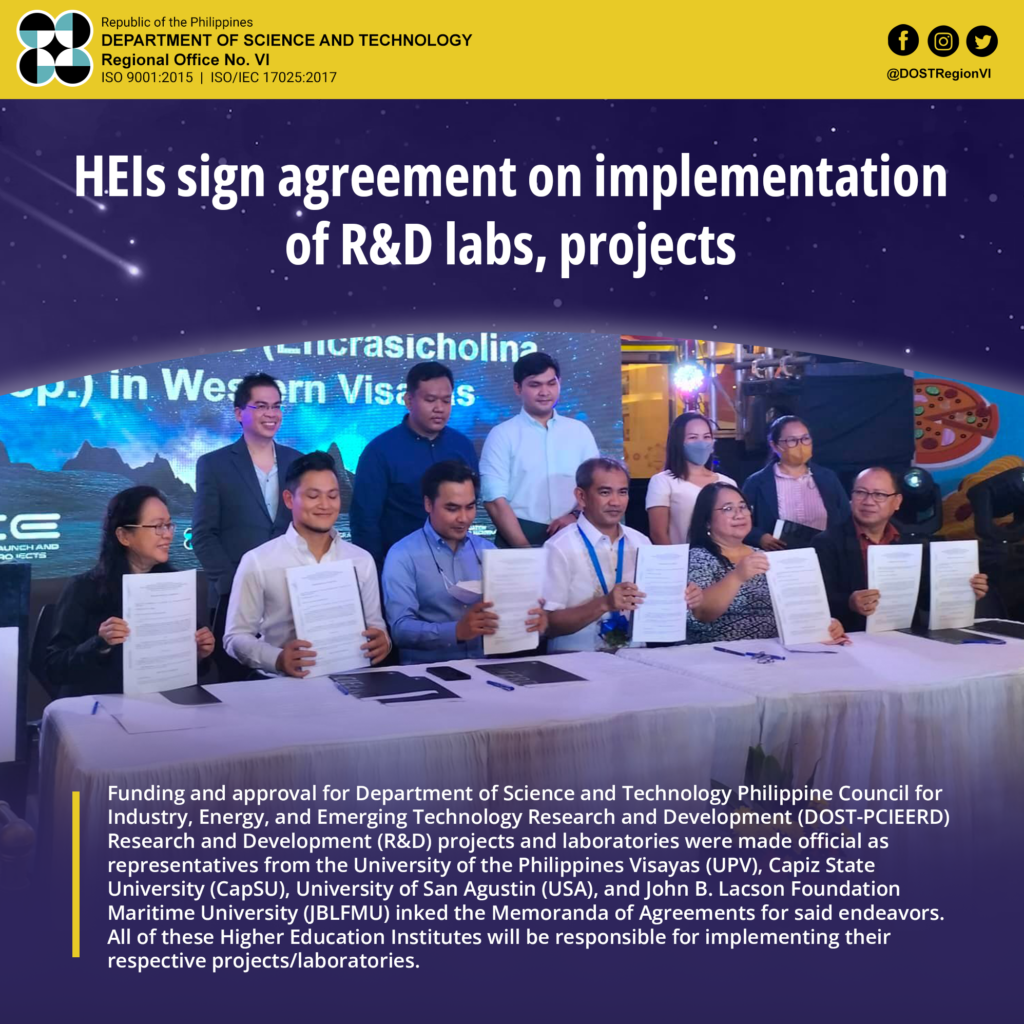
A ceremonial Memoranda of Agreement (MOA) signing took place among four higher education institutes (HEIs) to officially kickstart the establishment of three Department of Science and Technology Philippine Council for Industry, Energy, and Emerging Technology Research and Development (DOST-PCIEERD) funded research and development (R&D) laboratories and launching of four R&D projects.
The participating HEIs comprise the University of the Philippines Visayas (UPV), Capiz State University (CapSU), University of San Agustin (USA), and John B. Lacson Foundation Maritime University (JBLFMU).
The laboratories received approval under the Institutional Development Program (IDP) of DOST-PCIEERD which supports the establishment or upgrading of research laboratories and facilities at academic and research institutions within PCIEERD sectoral priority areas or the Harmonized National R&D Agenda, where research expertise and facilities are lacking.
CapSU will have two of the three laboratories called the Innovations Laboratory for Process Machinery and Related Technology Development (i-PROMATECH) and, the QualiSafe Lab: Food Quality and Safety Laboratory for Seafoods and other Innovative Food Products. R&D projects relating to seafood and other innovative food products will be carried out in these laboratories.
On the other hand, the third laboratory called the Hub for Sustainable Smart Nanomaterials in the Philippine countryside will be set up in the USA. Advanced materials and nanotechnology in smart packaging technology will be the laboratory’s primary focus.
Meanwhile, the DOST-PCIEERD approved four R&D projects for 2022 funding under the Regional Research Institution (RRI) Program. Worth mentioning is that the RRI program of the PCIEERD seeks to develop PCIEERD Regional Consortium member institutions’ capabilities alongside encouraging novice researchers and institutions to conduct R&D, and eventually increase the region’s pool of available Researchers, Scientists, and Engineers (RSEs).
The approved R&D projects are “Development of Protein Hydrolysates from Catfish Consumption Wastes as Food Ingredient” by Mercy B. Quilantang of UPV, “Nano-enabled bioplastic from regenerated cellulose” and “Seawater desalination using a passive solar-driven membrane system: nano improvement of the membrane layers”, both by Dr. Noel Peter B. Tan of USA, and “Design and Development of Automated Marine Sewage Treatment Plant (MSTP) Using Ultraviolet Lights with Holding Tank and Shore Connection to Discharge Pipe for Domestic Vessels” by Dr. Rolando A. Alimen of JBLFMU. (KJRGagajena/DOST VI-KMU)

